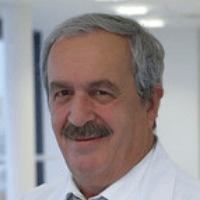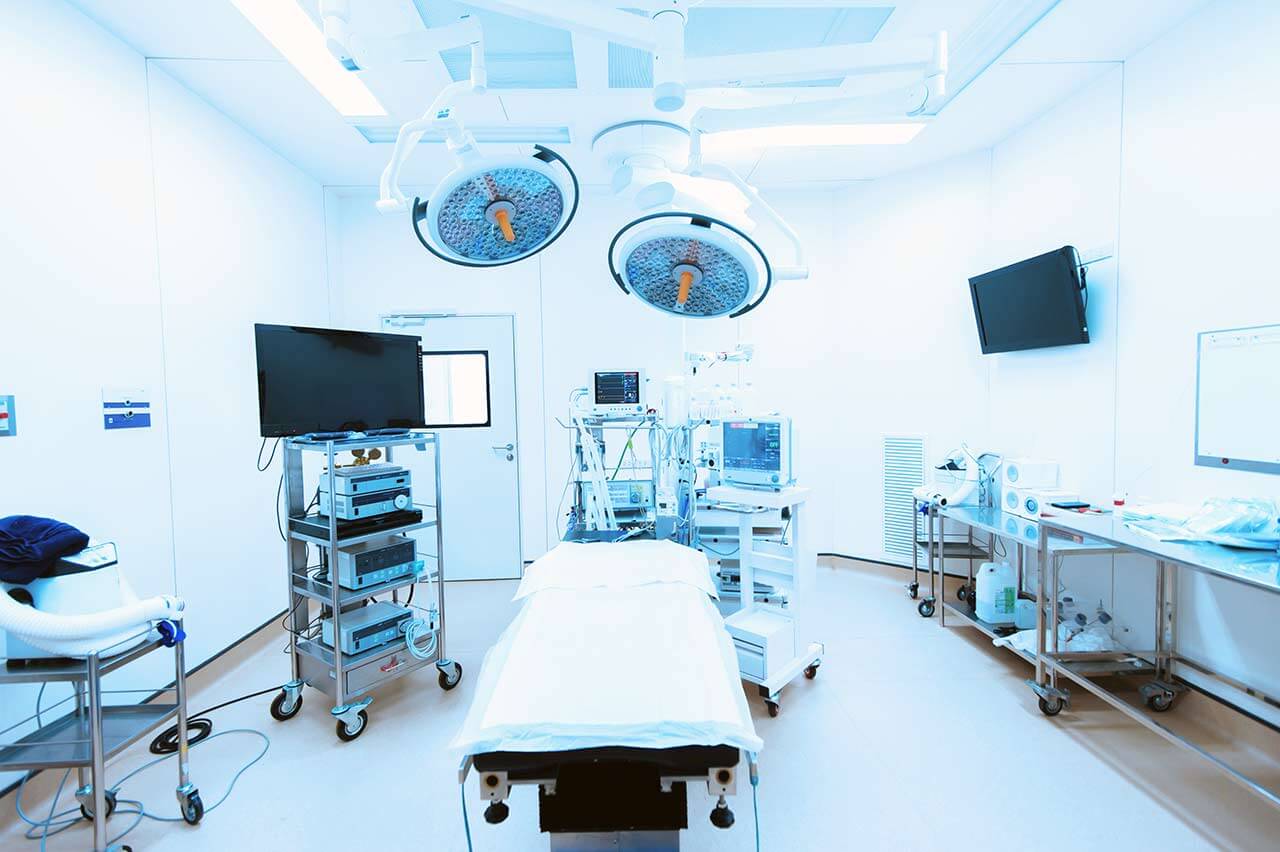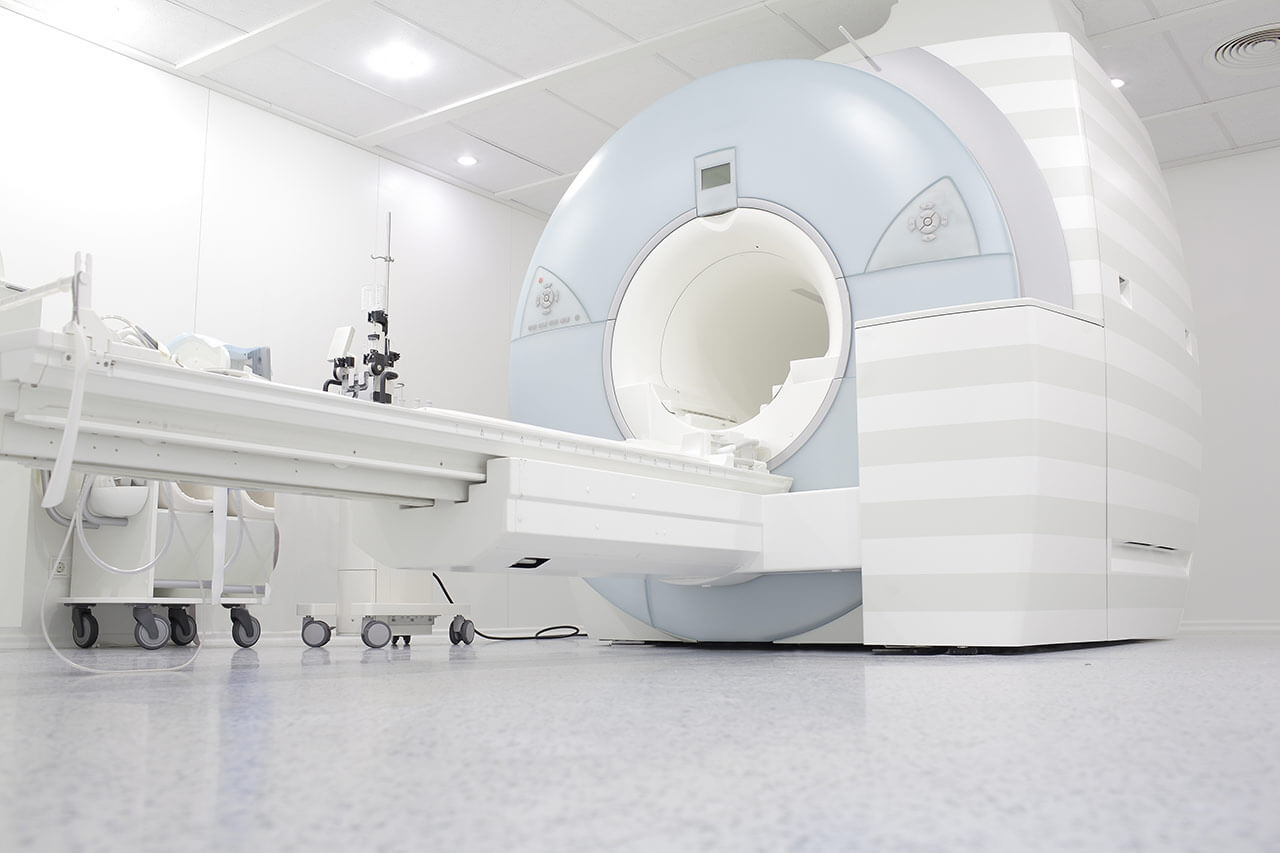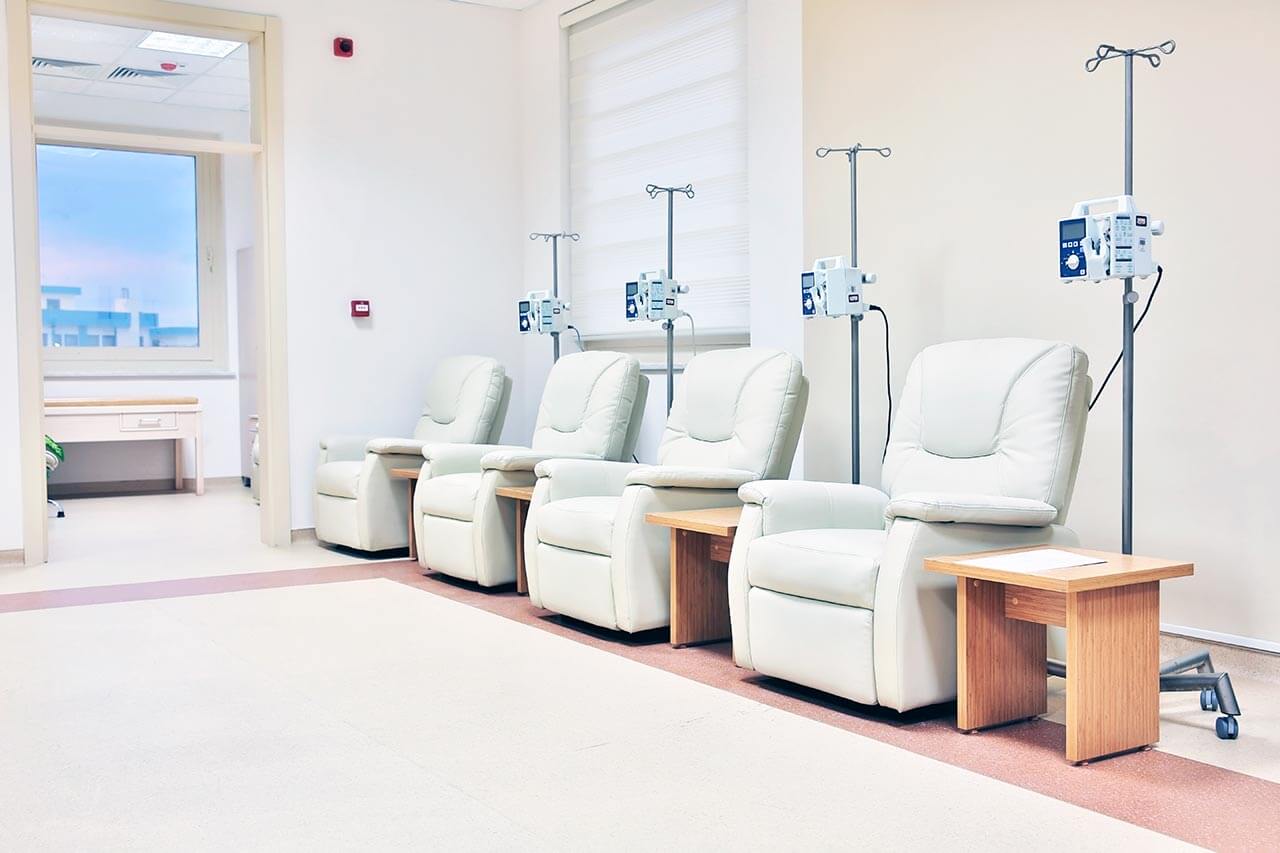
The program includes:
- Initial presentation in the clinic
- history taking
- general clinical examination
- laboratory tests:
- complete blood count
- biochemical analysis of blood
- measurement of hormone levels in blood
- collection of daily urine for hormone analysis
- ultrasound:
- thyroid
- abdomen
- pelvic organs
- adrenal glands
- examination by andrologist/ urologist
- consultation of related specialists
- symptomatic specific treatment
- the cost of essential medicines and materials
- nursing services
- control examinations
- full hospital accommodation
- developing of further guidance
Required documents
- Medical records
Service
You may also book:
 BookingHealth Price from:
BookingHealth Price from:
About the department
According to the reputable Focus magazine, the Department of Adult and Pediatric Urology at the Hospital Nordwest Frankfurt am Main ranks among the top German medical facilities specializing in prostate cancer treatment!
The department's medical team offers the full range of diagnostic and therapeutic services for patients with urinary diseases and men with genital diseases. The department also deals with the treatment of young patients with urologic diseases. The primary focus of the department's clinical practice is the treatment of malignant tumors of the kidneys, bladder, prostate, testicles and penis. The department's doctors also have successful experience in the treatment of urinary incontinence in men and women. The department performs comprehensive diagnostics and microsurgical interventions to treat male infertility. In addition, the therapeutic options of the medical facility are complemented by the treatment of kidney stone disease, prostate adenoma and erectile dysfunction. The availability of high-tech operating rooms and modern medical equipment in the department allows providing effective treatment even in particularly complex clinical cases. The Chief Physician of the department is Prof. Dr. med. Dr.h.c. Eduard Becht.
The department is one of the leading medical facilities in Germany specializing in prostate cancer treatment. With the vast clinical experience and state-of-the-art medical advances, the department's urologists successfully cope with prostate cancer therapy. To confirm the diagnosis, the specialists usually conduct such diagnostic procedures as a PSA test, digital rectal examination of the prostate, ultrasound scanning, including with contrast enhancement, biopsy and imaging studies (if clinically indicated). With the results of the diagnostic examination, the department's doctors have reliable data on the type of oncology, the stage of the tumor, its location, the presence or absence of metastases, etc. Taking into account all of the above mentioned clinical data, as well as the patient's general health condition and age, the specialists elaborate an optimal treatment regimen. The department's therapeutic options in this field include radical prostatectomy with potency preservation, extraperitoneal laparoscopic radical prostatectomy, cryoablation for localized prostate cancer, HIFU (high-intensity focused ultrasound) therapy, chemotherapy, immunotherapy, hormone therapy, radiation therapy, etc.
Special attention should be given to the HIFU method, which is a minimally invasive procedure with the use of high-intensity focused ultrasound beams. In contrast to conventional imaging ultrasound, the HIFU method involves a targeted thermal effect on the areas of the prostate affected by the oncological process. During the intervention, a particular area of the prostate is exposed to a temperature of 90-100°C for 3 seconds, which leads to the destruction of cancer cells. The HIFU procedure is one of the most modern urological techniques and allows the doctors to effectively treat prostate cancer without surgery. The main advantages of high-intensity focused ultrasound include high efficiency of the therapeutic procedure, minimal side effects, maximum preservation of potency and control of urination, as well as a short hospital stay and quick recovery after the completion of therapy. In addition, HIFU therapy can be successfully used in combination with other therapies. It should be noted that the HIFU technique is available only in the leading medical centers in developed countries, so the department's patients can count on the highest quality of treatment.
The treatment of kidney, bladder, testicular and penile cancers is also within the competence of the department's doctors. As a rule, the treatment of these types of oncology is based on surgical resection of the tumor. The team of the department's urologists gives preference to organ-preserving surgery and is proud of its outstanding success in this field. The surgical treatment is complemented by chemotherapy, radiation therapy and other conservative methods. Oncologists and radiologists are often involved in the therapeutic process.
The department admits many patients with benign prostate diseases as well. One of the common urological pathologies among men is benign prostatic hyperplasia (prostate adenoma). The range of the department's therapeutic services in this area includes transurethral resection of the prostate, laser ablation (innovative Greenlight Laser) and transrectal intraprostatic injections. The optimal type of therapy is determined depending on the stage of the pathological process, the size of the prostate adenoma and other important factors. All of the above mentioned treatments are modern and they are successfully used in the best Urology Clinics in the world.
In the field of pediatric urology, a special focus is on the treatment of phimosis, undescended testicle, urinary incontinence, vesicoureteral reflux and hypospadias. Whenever possible, conservative treatment methods are preferred. If it is impossible to avoid surgery, pediatric urologists use sparing minimally invasive techniques in order to perform the necessary surgical procedures through small skin incisions. When using these surgical techniques, the child does not experience severe pain and recovers as quickly as possible after the operation.
The department's range of medical services includes:
- Diagnostics and treatment of prostate cancer
- Perineal and retropubic radical prostatectomy with potency preservation
- Extraperitoneal laparoscopic radical prostatectomy
- Cryoablation for localized prostate cancer
- HIFU therapy (high-intensity focused ultrasound)
- Chemotherapy
- Immunotherapy
- Hormone therapy
- Radiation therapy
- Diagnostics and treatment of kidney cancer, including renal cell carcinoma
- Organ-preserving surgery
- Diagnostics and treatment of bladder cancer
- Surgical resection of tumors (if possible, organ-preserving surgery), including reconstructive surgery to form a new bladder
- Radiofrequency-induced intravesical chemotherapy
- Diagnostics and treatment of testicular cancer
- Retroperitoneal lymph node dissection
- Local therapy
- Chemotherapy
- Diagnostics and treatment of penile cancer
- Laser therapy
- Glans reconstruction
- Diagnostics and treatment of benign prostatic hyperplasia
- Transurethral resection of the prostate
- Laser ablation (innovative Greenlight Laser)
- Transrectal intraprostatic injections
- Diagnostics and treatment of kidney stone disease
- Extracorporeal shock wave lithotripsy
- Ureterorenoscopy
- Laser therapy (holmium laser)
- Diagnostics and treatment of urinary incontinence
- "Neocontrol" conservative therapy
- Minimally invasive treatment methods (for example, collagen injections for women, TVT, TVT-O sling surgery for men)
- Classic surgical procedures
- Colposuspension and sacrocolpopexy in women
- ATOM and AMS 800 artificial sphincter placement for men
- Diagnostics and treatment of urethral disorders
- Minimally invasive interventions for urethral stenosis
- Open reconstructive urethral surgery
- Diagnostics and treatment of male infertility
- Microsurgical techniques
- Diagnostics and treatment of erectile dysfunction
- Diagnostics and treatment of urologic diseases in children (focus on the treatment of phimosis, undescended testicle, urinary incontinence, hypospadias and vesicoureteral reflux)
- Conservative treatment methods
- Minimally invasive surgery
- Other diagnostic and therapeutic options
Curriculum vitae
Higher Education and Professional Career
- June 2011 Chairman of the Association "Interdisciplinary Urologic Oncology Frankfurt am Main".
- April 2005 Honorary Doctoral Degree, National and Kapodistrian University of Athens.
- October 1994 Extraordinary Professorship at the Faculty of Medicine of the Saarland University, Homburg.
- July 1994 Appointed as Chief Physician of the Department of Adult and Pediatric Urology at the Hospital Nordwest Frankfurt am Main.
- March 1989 Senior Physician of the Department of Urology at the University Hospital Saarland, Homburg.
- February 1986 Board certification in Urology.
- May 1980 Doctoral thesis defence in Medicine, Department of Nephrology, Johannes Gutenberg University of Mainz.
- May 1979 Admission to medical practice.
- 1972 - 1979 Study of Human Medicine at the Johannes Gutenberg University of Mainz.
Teaching Career
- Since 1994 Lecturer at the Johann Wolfgang Goethe University Frankfurt am Main.
Clinical Interests
- Treatment of urologic cancers.
- Minimally invasive surgery for prostate cancer.
- Organ-preserving surgery for kidney tumors.
- Treatment of prostate adenoma.
- Reconstructive urology.
- Surgical treatment of urethral diseases.
- Treatment of urologic diseases in children.
- Treatment of kidney stone disease.
- Treatment of urinary incontinence.
Photo of the doctor: (c) Krankenhaus Nordwest
About hospital
According to the reputable Focus magazine, the Hospital Nordwest Frankfurt am Main ranks among the top German medical facilities!
The hospital has a reputation of a modern multidisciplinary medical center with excellent quality of services. The medical complex is an academic hospital of the Goethe University Frankfurt, thanks to which it provides patients with treatment based on the very latest achievements of university medicine. The hospital has 12 specialized departments, as well as numerous narrowly focussed centers and institutes, whose doctors work hand in hand for the benefit of their patients. The hospital has 582 beds. The medical staff of the hospital annually provides diagnostics and treatment to more than 21,800 inpatients, while over 36,000 patients receive medical care on an outpatient basis.
The hospital presents such medical fields as oncology and hematology, radiation oncology, gynecology, urology, neurology, internal medicine, general and abdominal surgery, thoracic surgery, vascular surgery and others. Each of these medical fields is represented by a professional team of doctors and nursing staff. Oncology is one of the priority focuses of the hospital. In 2008, the Johann Wolfgang Goethe University Hospital Frankfurt together with the Hospital Nordwest Frankfurt am Main founded the University Cancer Center Frankfurt recognized by the German Cancer Aid as one of the best in Germany. In this high-tech center, the patients receive effective interdisciplinary medical care, since not only oncologists, chemotherapists and radiation oncologists are involved in the therapeutic process, but also specialists from related disciplines, including gynecologists, urologists, gastroenterologists, pulmonologists, surgeons and other experts. The patients are also provided with qualified psychological care, which is an integral part of the successful cancer treatment. Thanks to its status as an academic hospital, the medical facility gives patients the opportunity to participate in clinical trials at both national and international levels.
The hospital is proud of its health facilities and state-of-the-art equipment, which plays an important role in the effective diagnostics and treatment. For example, since 2016, the Department of Radiation Oncology has been using cutting-edge Truebeam STx NOVALIS linear accelerators from VARIAN and Brainlab, which allow the doctors to provide highly effective, but very sparing, radiation therapy for cancer treatment. Despite the presence of modern medical technologies in the hospital, the focus of the doctors is on the patient with his individual needs and wishes. The specialists pay attention to creating a friendly atmosphere in the hospital and always demonstrate humanity in relation to their patients.
The outstanding clinical activities of the medical complex are awarded by many prestigious certificates, including certificates of the German Cancer Society in the treatment of bowel, liver, prostate, gynecologic cancers, etc. The Aktion Saubere Hände certificate and a modern quality management system guarantee patients the highest safety standards during both diagnostic and therapeutic procedures.
Photo: (с) depositphotos
Accommodation in hospital
Patients rooms
The patients of the Hospital Nordwest Frankfurt am Main live in comfortable single and double rooms, corresponding to the level of a top-class hotel. Some single rooms have large panoramic windows offering beautiful views of the city of Frankfurt.
The patient room furnishing includes an automatically adjustable bed, a bedside table, a wardrobe with a built-in safe, a desk with a chair and a reading lamp, a TV, a telephone and a mini-fridge. The patient rooms have Wi-Fi (at an extra fee). All patient rooms have an ensuite bathroom with shower and toilet. In the bathroom one can find changeable towels, a bathrobe, a hairdryer and toiletries.
The hospital has a cafe on its territory, where one can not only have a tasty snack, but also buy newspapers, magazines, personal hygiene products, drinks, sweets and much more.
Meals and Menus
The patients of the hospital are offered delicious and varied three meals a day: breakfast, lunch and dinner. Meals are served to patients in their room. During the day, the patients are provided with fresh fruits, juices, coffee, tea and mineral water.
If you are on a specific diet for some reason, you will be offered an individual menu. Please inform the medical staff about your dietary preferences prior to the treatment.
Further details
Standard rooms include:
Religion
The religious services are available upon request.
Accompanying person
During the inpatient program, the accompanying person can live with the patient in a patient room or a hotel of his choice. Our managers will help you choose the most suitable option.
Hotel
During the outpatient program, the patient can stay at the hotel of his choice. Our managers will help you choose the most suitable option.





